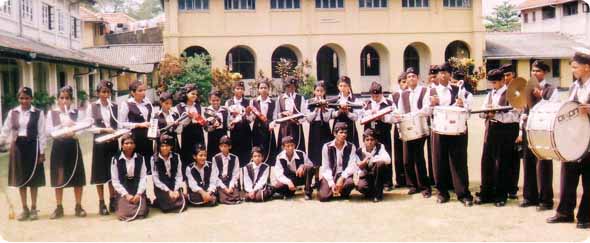The Sight Impaired

Our programme is focused on 'Education for life'. The children at the secondary school follow the national curriculum in the same way that all children in mainstream schools do. This means they prepare to take the General Certificate in Education (G.C.E) 'O' level examination. The subjects taught at 'O' level are Sinhala language, Sinhala Literature, English, Mathematics, Science, Craft, Aesthetic Studies, Technical Studies and Social Studies. The syllabus for both sighted and sight impaired children for all subjects is identical. It therefore follows, that any and all questions, at the GCE 'O' level examination, dependent on sight – such as those including diagrams, graphs etc. discriminate against the blind and partially sighted children.
If the student does well at the 'O' levels and qualifies to do the GCE 'A' levels, he or she must transfer to a mainstream school. A good pass at the GCE 'A' levels will enable the student to enter one of the universities for a selected course of studies for a bachelors degree.
Only a few students qualify to do their 'A' Levels and for those who are unable to proceed to do the G. C. E. Advanced Level, opportunities are provided to train them in a variety of vocations. These include traditional vocations such as weaving (handloom), rattan work, etc. Today, with computers and specially developed software, it is possible to train blind students to be Stenographers, by typing directly onto computers. They can be trained to be receptionists and telephone operators. Partially sighted students are encouraged to find employment in the hospitality trade.
The school's' Job Placement Officer looks for work to suit the skills and aptitude of the students who are about to leave the school. It can be difficult to find jobs, as not all employers are willing to employ blind or partially sighted persons. However, with corporate citizens becoming increasingly aware of their social responsibilities, there is some hope.